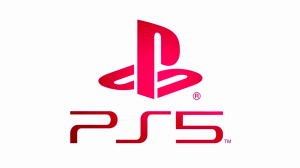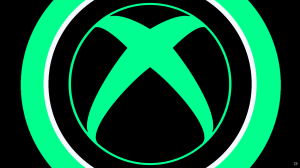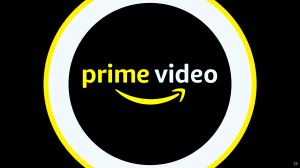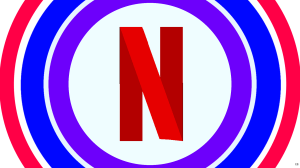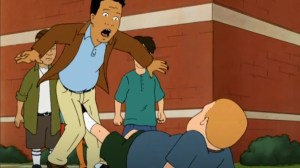It will be 20 years this June since Star Trek: Deep Space Nine came to end with its final episode, “What You Leave Behind.” Ira Steven Behr, the show’s executive producer/showrunner, is looking back at the series’ seven-year run in a new documentary titled What We Left Behind: Looking Back at Star Trek: Deep Space Nine.
Videos by ComicBook.com
Behr crowdfunded the documentary, which is now being distributed by Shout! Studios for a one-night-only theatrical engagement on May 13th. He reassembled the show’s cast and crew for interviews and even reconvened the writers’ room to break down a theoretical eighth-season premiere.
Ahead of the film’s theatrical screening, Behr spoke to ComicBook.com over the phone about the challenges of making a show that was ahead of its time, how Star Trek: Voyager offered new freedoms, and more.

ComicBook.com: One thing that I gathered from the documentary was that it often took some explaining on your part for the executives above you to understand where you were coming from and what you were trying to do with the show. Was there ever a moment like a turning point, a moment when they understood a little better what Deep Space Nine was?
Ira Steven Behr: I think once Voyager came along and Voyager was the flagship show on UPN, the new network, and all the attention — It’s like in The Lord of the Rings when the eye of Sauron moves away from looking for Frodo and Sam, then goes to look at Aragorn and Gandalf and their army coming to Mordor.
That’s how I felt. I could feel the eye passing over us and staring deeply into the heart of some other place, and that was fine with us. At one point… Michael [Piller] came to me and came into my office and then he closed the door and was very serious and said, “All right, I just want you to know, I’m a tremendous fan of Deep Space Nine, I like what you guys are doing, but I just need you to know that Voyager is going to be the flagship show in the franchise. It has to be. I mean, UPN is the new network, and they’re putting all their money on Voyager. So no matter what job, no matter how good a job you do, you’re always going to be in the shadow.”
And he said it with regret. He said it like he was giving me the worst possible news. I don’t know if we hugged or not, but it was a warm moment between the two of us. And then he left my office and I threw my hands up in victory and said, “Yes, fantastic. Now we’ll let everyone, all of them all look someplace else and just leave us alone and let us do our thing, and whoever watches watches at that point, and I really don’t care. But we have like four more years, five more years left of this thing that we’re going to rock and roll.”
Watching Deep Space Nine now, it feels like television that was ahead of its time. How has been in the years since for you watching television move more and more — and even the Star Trek franchise with Discovery — towards what you were doing back then with Deep Space Nine?
I only wish that at the time I would have been that convinced that we were ahead of the times and that it was all going to work out perfectly fine. That definitely wasn’t the feeling. It just felt like a no-brainer to me. It’s like, here was this show, a show I did not create, but a show that was going to be handed to me, that from the very beginning Michael had told me that he was going to give the show to me. This is the show that was created by these other people, but the potential was there for so much more. Who in their right mind wouldn’t take it as far as they could take it?
So it just seemed like it was a show that called out for serialization. That was the best way to tell these stories. We definitely didn’t want to do what [The Next Generation] had done and was doing. It was still on the air. And it’s like, we want to carve our own little path.
So it was form and content. It was just finding the right form for the content. The form was serialization. It was a no-brainer in my mind. And the fact that it was not embraced by everyone, including the fans at times, was disappointing.
I get the fact that syndication was a bitch, and that shows were on at all times of the day and night, and it was hard to follow when shows would get preempted for some dopey local thing. I get it, but I have no control over that. I can’t control the delivery system. All I could do is help to make the best Deep Space Nine series we could make. And that’s what I cared about. Not what happened after the show was out of our hands and how it was broadcast. It was like, I don’t care about that.
Were the things you thought about doing then or tried to do that didn’t happen that you think you’d have an easier time making happen now with how television has changed?
Well, yeah, I mean, obviously I would have liked to have gone full-on serialized a lot sooner than we did. That’s a simple one. I wish we could have done a little bit more with the Garak character. I talk about it in the doc. I mean, he was clearly gay or queer or however you want to say it. I think I would have loved to have taken that and see where that went and how that affected his relationship with Bashir.
But we had so many victories. We managed to have so many victories, in my mind, that the things that did not happen… I would have liked to have had Sisko be able to shave his head a lot sooner than he did. I would have liked him to have been the captain a lot sooner than he was. But so what? Ultimately no one cares.
I tell writers this on shows all the time. All the audience cares, all I care when I’m an audience is, what are you showing me? What’s the final result? I don’t care how you got there. I don’t care what you did not do. All I can deal with is what you did. So really, whatever regrets I have are meaningless in the general scheme of things.
Speaking of Garak, you mention in the documentary that Gul Dukat was the most popular Cardassian character on the show when it first aired, but now Garak has surpassed Dukat there. Do you have a theory about what that is?
Yeah, I think — Look. Marc Alaimo did a fantastic job as Dukat. There’s no doubt about it, and if you don’t believe me, ask Marc Alaimo. He did a great job with that character. Basically, because he was in denial about who that character really was, but that’s why it worked. But it was, as deep as that character was, that the archetype for that character is really easy to understand. He is the villain who has other levels, he’s the self-deluded villain who sees himself as the hero. He is the villain who cares about his daughter, and in his mind that makes him more human, I guess you have to call him. Well, Hitler loved little kids. That doesn’t mean we give him a pass for everything that he did. But at its core, it’s a simple character. Well done, well-written, well-played, but simple.
Garak, a whole other story. Garak is a mystery wrapped in an enigma. So who he is, what he really is, who the hell knows? And I think it took a more sophisticated audience to really get behind that kind of a character, because back in the day, it seemed anyway, that mystery and … I don’t want to say subtlety, but something along those lines … That’s not what people want, that they wanted their TNG good, bad, everything very clear, everything very clean, everything very understandable. And at the end of the day, everything was safe. Everything was basically safe. And Garak is not a safe character. And the fact now that he’s so popular says something about how the audience has matured. And that’s a good thing.
You mention in the documentary that you had a lot of ground to cover and that not everything made it into the final cut. What was the hardest cut you had to make?
Well, a lot of the things that did not make it in that will be in the special features. The things that we did not have — they would be incidents that happened that we did not get two sides, telling two different points of view. We only had one point of view, and if we had only one point of view, it would seem like if it was in the documentary we’re saying that’s the truth of it. This whole documentary is to tell people that, “Beware the search for truth because sometimes lies are as true as the truth.” So we couldn’t use those things, because we only had the one point of view. We could put them in the special features because then we’re not claiming to the same kind of level of a search for fairness, or both sides, as we have in the doc. The same rules do not apply. So we can just, “Well, of course that’s so entertaining, we’re gonna show them.”
So, those are the things that I wish sometimes we could have had people talking about the same thing, but it didn’t always happen. The other thing that really surprised me was I couldn’t get either [Alexander Siddig] or Colm [Meaney] to talk about Bashir and O’Brien. Those guys were so over that relationship. They had played it so many years. Neither one of them had any desire to discuss it, it seemed, and I tried on many occasions. Ultimately they gave me nothing that I could use. So that whole O’Brien-Bashir relationship doesn’t exist in the doc, even though I thought it broke ground in terms of the franchise.
Hopefully, this documentary brings some new eyes to Deep Space Nine. For new viewers discovering the show for the first time who want to get a sense of the show, are there any episodes that you think serve as good examples of what Deep Space Nine is all about?
I really don’t … There’s too many. I don’t have a really cool answer to that. Obviously, I would start with the pilot and watch the pilot, because even if it’s in some of its roughest ideas, it sets the stages for so many things we went back to, so I think the answer is just to watch the pilot, and see if it sings.
*********************
What We Left Behind: Looking Back at Star Trek: Deep Space Nine plays in theaters on May 13th. A home media release will follow.
—–
Have you subscribed to ComicBook Nation, the official Podcast of ComicBook.com yet? Check it out by clicking here or listen below.
In this latest episode, we share our Detective Pikachu review, talk MCU Phase 4, Marvel’s new Hulu shows, and more! Make sure to subscribe now and never miss an episode!


